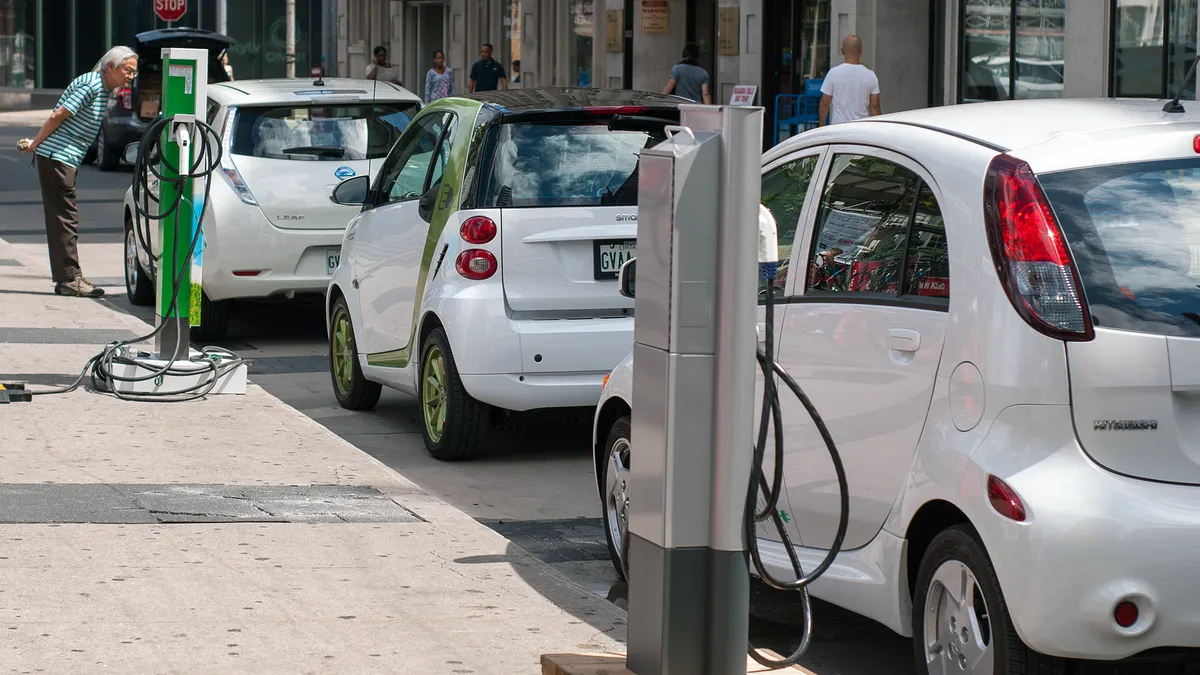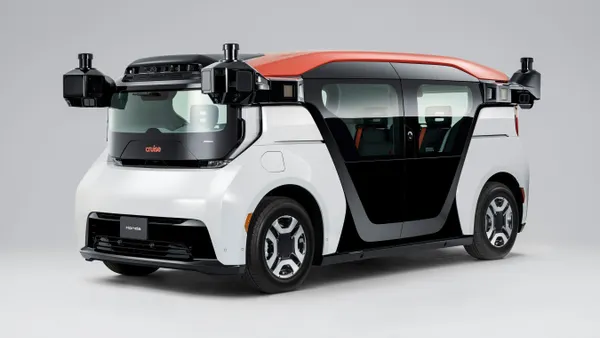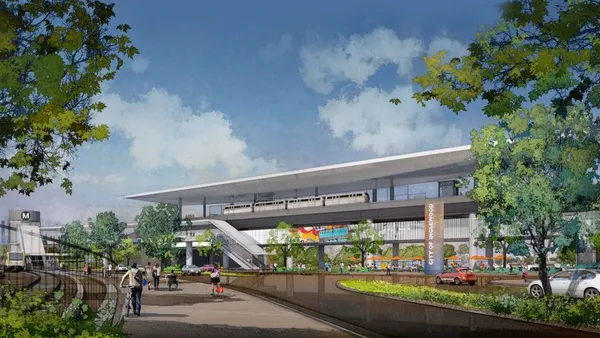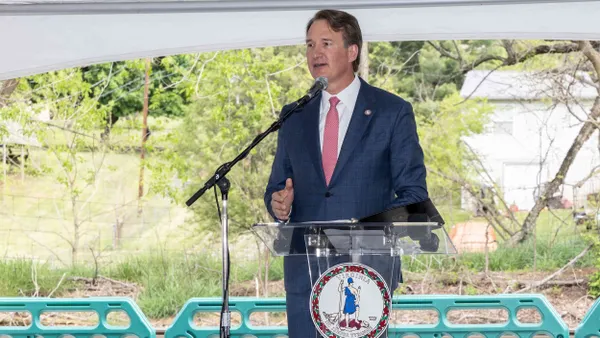Dive Brief:
-
Washington, DC regulators last week rejected part of Pepco's application to operate its own electric vehicle (EV) program, while opening up the broader order for more comments.
-
The Public Service Commission's decision approves some of Pepco's EV offerings, but maintains an earlier regulatory decision that denied the utility's request to own and operate its own charging stations. Instead, the PSC is sticking with the "make ready" model, where the utility makes its transmission infrastructure ready for third party EV charging companies to build out stations.
-
The order also raises more questions about how, if at all, to regulate third party charging companies as well as how to address a lack of charging infrastructure in certain parts of the city. The PSC first denied the utility's transportation electrification proposal in April and the utility submitted a plan for regulators to reconsider in May.
Dive Insight:
As electric vehicle deployment grows, pressure is mounting on regulators to encourage investment and define utility roles.
In D.C., the main tension has been striking a balance between third party and utility roles, and how to improve infrastructure in a district with only 120 level 2 chargers and only one operable DC fast charger, Executive Director of the Alliance for Transportation Electrification Philip Jones told Utility Dive.
"There's been quite an internal debate I'm sure within the commission," he said. "They're trying to hang on to this third party model. But at the same time, they're trying to recognize some stronger role for the utility."
One question is whether the commission will regulate companies like Tesla as retail electricity suppliers, a debate that's being raised in states like Kentucky, Iowa and Arizona.
"They're trying to walk kind of a fine line there and it's going to be interesting to see how that plays out because many other states … [are] kind of looking at similar questions on this issue of what is a public utility ... and what sort of regulation, if any, should there be on that sector," said Jones.
The other major issue the commission is looking to address is infrastructure buildout. Previously, Pepco had filed to own and operate 35 Level 2 stations and 20 DC fast chargers, and wanted to deploy at least 20% of those stations in Wards 5, 7 and 8, which are low-to-moderate income areas. The commission says equitable access to EV infrastructure still needs to be studied more.
"The Commission is committed to ensuring that transportation electrification opportunities flourish in all segments of the District," the PSC wrote in its Aug. 2 order, and it "will explore appropriate actions to facilitate transportation electrification opportunities in underserved communities."
Other groups are concerned that Pepco's move to own and operate chargers would burden ratepayers for something that the market doesn't need in the first place.
The Office of the People's Council (OPC) of D.C. "supports equitable deployment of [EV charging stations] across all 8 wards of the city but does not favor requiring all Pepco ratepayers to bear the burden of providing [EV charging stations] where there is no evidence that there are unmet needs across the District," OPC attorneys emailed Utility Dive.
"[T]he Commission made the appropriate decision in denying and granting in part Pepco's Application for Reconsideration and not laying the burden of charging stations on ratepayers' backs when only 721 EVs are registered in the District as of August 2018."
The order reopens the record, allowing additional comment from stakeholders over the next 30 days.













